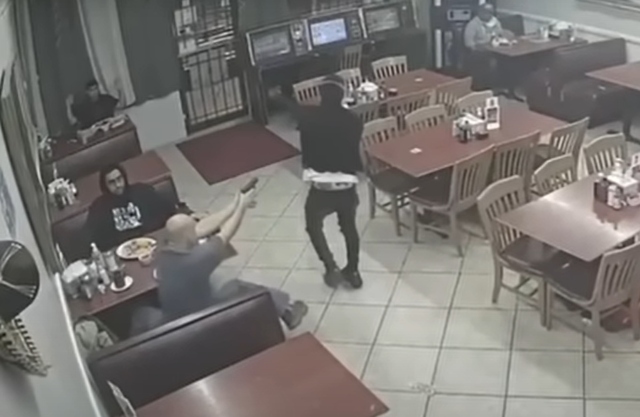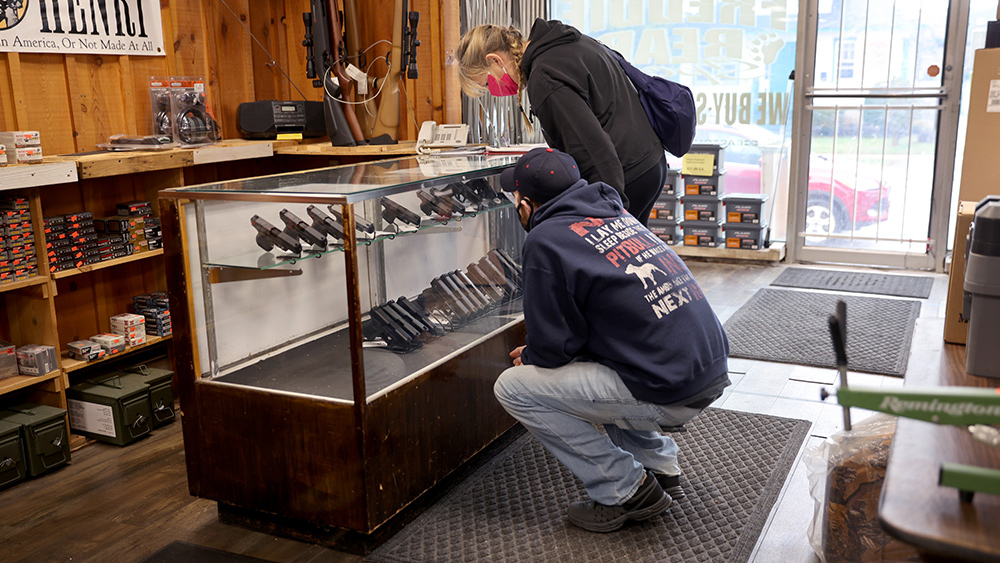Food, preps and survival skills: 7 Ways to prep for free before SHTF
01/10/2023 / By Zoey Sky

Prepping can be expensive, but if you are working with a tight budget, there are other ways to prepare for free before SHTF.
For example, you can learn new prepping and survival skills without spending money by borrowing books from the library or taking free training courses. (h/t to TheOrganicPrepper.com)
Review your emergency plans with your family
First, set aside some time with your family and review your emergency plans at least once a month. If possible, run fire drills or bug-out drills to work out any kinks in your plans.
While running drills, check for any issues, like miscommunication, and clarify where the group should meet up and at what time.
If someone needs new medication for a recent health issue, update your bug-out bags and rotate your supplies regularly. If you have a guest at home, make sure you have an extra bag prepared for them.
Organize your food storage
Your food storage is useful even before SHTF. (Related: Budget prepping: Ways to make your food budget last longer.)
When things are quiet, set aside some time to organize your food storage.
When arranging things, place the items closest to their expiry dates at the front. This ensures that you eat them first and they don’t get bad in your stockpile. If you use up items, replace them so you have enough when SHTF.
You should also start taking a full inventory of your preps. To keep track, you can have both a digital copy and a hard copy.
Organizing your food storage and doing a regular inventory will help you keep a more balanced stockpile. Try to update your inventory at least every one to two weeks.
Learn new prepping and survival skills
Adaptability is crucial for any survival situation, but there is always room for improvement in this aspect of prepping.
Before SHTF, practice skills like scenario run-throughs with your family and monitor current events. You can also increase your adaptability and get better prepared for free by having healthy lifestyle habits to improve your overall well-being.
For example, you can improve your eating habits and exercise at home. You have to be in good physical shape because when SHTF, you might have to bug out and carry a heavy bag full of supplies.
If you aren’t in good shape now, start exercising. You can also consider doing some physically demanding tasks such as gardening or hauling firewood.
If you have free time, try to exercise for at least thirty minutes five days every week.
Here are some basic exercises that you can do at home:
- Burpees
- Deadlifts
- Jogging
- Jumping jacks
- Lunges
- Push-ups
- Running
- Sit-ups
If you don’t feel like exercising, remember that not being in good shape when facing a survival scenario will be a big problem. By working out regularly, you can help improve your odds of survival.
Work on DIY prepping projects
Projects and DIYs can be entertaining and useful. Make the most of your time by starting DIY projects like making homemade pillows or refinishing old furniture.
If you have other skills and hobbies like sewing or woodworking, use them to your advantage. Working on projects will help improve these skills as well.
Try checking online listings for free items. Most of the time, free things are the ones that need the most work.
If you see a project that catches your interest, pick the item up so you have something to practice your DIY skills on. If you are successful, you can keep the item for yourself or even sell it for some extra money.
Learn your way around your home in the dark
If you don’t have a flashlight with you at all times, start carrying one in your pocket now. This ensures that when you lose power at home in the middle of the night, you can safely navigate in the dark as you try to get to your supplies.
Since you don’t always know when the power will go out, try to learn how to make your way around your house in the dark without injuring yourself. When SHTF, you can save time stumbling around and get to your family members more quickly.
Read more
If you want to improve your prepping skills and add to your knowledge without spending a single dollar, read more.
To do this for free, borrow books from the local library and read anything from fiction to non-fiction. Some libraries also offer other resources like eBooks and audiobooks so you can listen to a book while working on other tasks.
Sign up for free FEMA training
The Federal Emergency Management Agency (FEMA) offers some free in-person and virtual classes. To join these sessions, register and sign up for training and lessons that you can use when disaster strikes, like cyber security courses.
You can prepare before SHTF without spending money by being resourceful and creative. Even if you don’t have extra money for your preps, you can still improve your skills by taking part in free training courses and applying newly learned skills at home.
Visit Preparedness.news for more tips on how to get ready before disaster strikes.
Watch the video below for more tips on how to prep on a budget.
This video is from THE HEALTHY AMERICAN channel on Brighteon.com.
More related stories:
Prepping tips: Scavenging in the city when SHTF.
20 Cheap, nutritious foods with a long shelf life for your survival stockpile.
Prepping tips: How to survive a long-term power outage.
Sources include:
Submit a correction >>
Tagged Under:
budget prepping, emergency preparedness, homesteading, how-to, off grid, preparedness, prepper, prepping, SHTF, survival, Survival Tips
This article may contain statements that reflect the opinion of the author
RECENT NEWS & ARTICLES
COPYRIGHT © 2018 SELFDEFENSE.NEWS
All content posted on this site is protected under Free Speech. SelfDefense.news is not responsible for content written by contributing authors. The information on this site is provided for educational and entertainment purposes only. It is not intended as a substitute for professional advice of any kind. SelfDefense.news assumes no responsibility for the use or misuse of this material. All trademarks, registered trademarks and service marks mentioned on this site are the property of their respective owners.




















